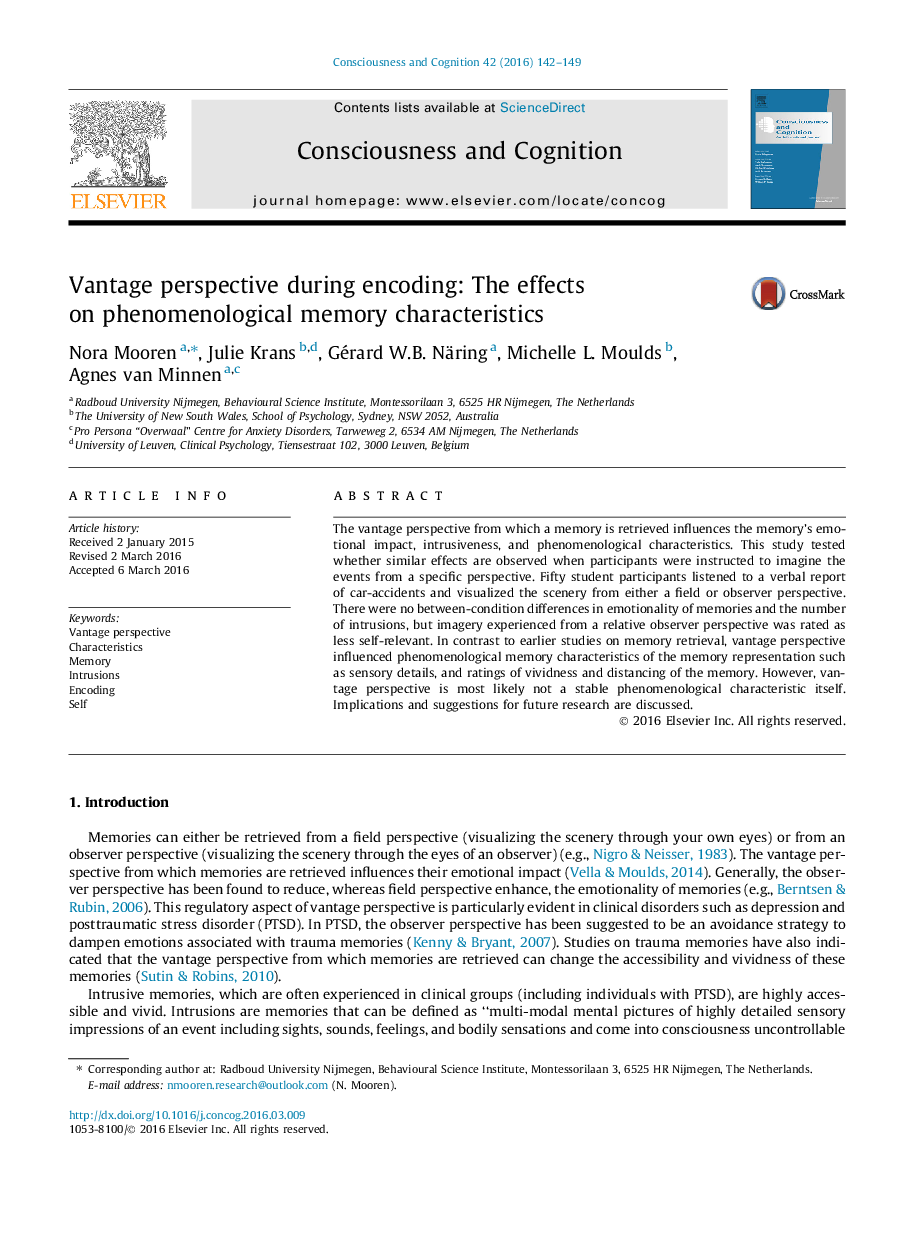| Article ID | Journal | Published Year | Pages | File Type |
|---|---|---|---|---|
| 7288466 | Consciousness and Cognition | 2016 | 8 Pages |
Abstract
The vantage perspective from which a memory is retrieved influences the memory's emotional impact, intrusiveness, and phenomenological characteristics. This study tested whether similar effects are observed when participants were instructed to imagine the events from a specific perspective. Fifty student participants listened to a verbal report of car-accidents and visualized the scenery from either a field or observer perspective. There were no between-condition differences in emotionality of memories and the number of intrusions, but imagery experienced from a relative observer perspective was rated as less self-relevant. In contrast to earlier studies on memory retrieval, vantage perspective influenced phenomenological memory characteristics of the memory representation such as sensory details, and ratings of vividness and distancing of the memory. However, vantage perspective is most likely not a stable phenomenological characteristic itself. Implications and suggestions for future research are discussed.
Related Topics
Life Sciences
Neuroscience
Cognitive Neuroscience
Authors
Nora Mooren, Julie Krans, Gérard W.B. Näring, Michelle L. Moulds, Agnes van Minnen,
